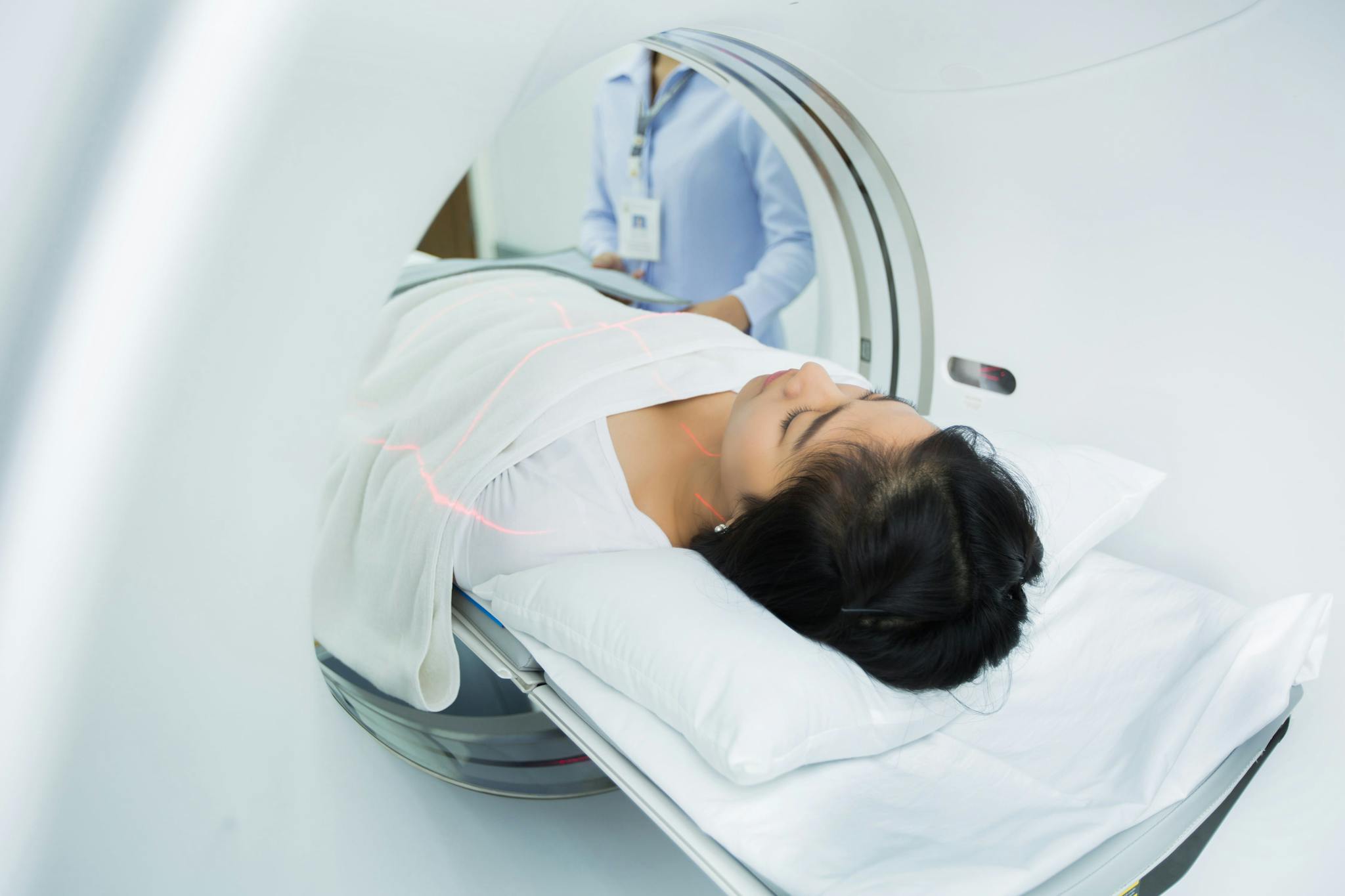
2024-07-12T16:54:51
Sunscreen Travel Tips
- Dermatology
April 22, 2019 | Imaging

Laying still in a CT or MRI machine for over an hour can seem like a daunting task, especially if someone suffers from anxiety or claustrophobia. Imaging tests like these can sometimes take up to an hour to perform, and it’s not uncommon for people to feel anxious during the test.
If do you get nervous, you’re not alone. Between 4 to 30 percent of patients report anxiety when getting an MRI. Since so many people suffer from anxiety during scans, we’ve compiled a list of tips to help those with anxieties overcome them.
Before your test, ask your technician if he or she can turn on music for you. Since MRI machines are loud, music can help block out the noise. Music can also have a calming effect, especially if you request a soothing playlist.
For those who have claustrophobia or nervousness about getting an imaging test, closing your eyes can help you forget how close the scanner is to you. It can also help you relax and temporarily forget that you are getting an MRI or CT scan.
Knowing how long the test will take beforehand may help your nerves settle during the scan. Once you are getting your test, you can always ask via intercom how much time you have left.
Sometimes, taking a sedative can help calm your nerves before an imaging test. Talk to your doctor about prescribing a mild sedative to help you stay relaxed throughout your entire test.
Most imaging centers offer blankets for those who want them during their test. Sometimes, it can be cold in the room where the test takes place and you may want to stay warm underneath a blanket. A blanket can also provide a sense of comfort.
One study reports patients are less nervous after they enter the MRI machine. This means that if you do suffer from anxiety about imaging tests, your anxiety will probably decrease after you enter the machine and throughout the rest of the procedure.
If you’re claustrophobic, you may want to look into options other than the typical MRI or CT scans. Instead of traditional MRI’s, ask about a high-field open MRI or an open upright MRI. Both of these options are more open than a normal MRI, which could help decrease symptoms of claustrophobia. Alternatives for CT scans include ultrasounds and MRI’s, but it depends on what the patient’s need is for the imaging test. You can ask your doctor if any of these options are right for you.
These seven tips will help those who are nervous about getting a CT scan or MRI feel better during their test. A failed test from claustrophobia or anxiety can be avoided if steps are taken to ensure your comfort during your test. Visit with your doctor if you have any questions about how to calm your nerves before imaging tests.
Revere Health Imaging offers the most advanced imaging technology in Utah Valley with convenient locations and reduced-cost exams. We even offer our imaging services at night for your convenience. Contact us today at 801-812-4624 for an appointment!
Sources:
“Magnetic Resonance Imaging (MRI) – Body.” RadiologyInfo.org
https://www.radiologyinfo.org/en/info.cfm?pg=bodymr
“MRI.” MedlinePlus
https://medlineplus.gov/ency/article/003335.htm
“CT (Computed Tomography) Scan.” Healthline
https://www.healthline.com/health/ct-scan
“CT Scan.” National Cancer Institute
https://www.cancer.gov/publications/dictionaries/cancer-terms/def/ct-scan
“How to Get Through an MRI if You’re Claustrophobic.” Diagnostic Imaging
https://www.mycdi.com/blog/how-to-get-through-an-mri-if-youre-claustrophobic/
“5 Ways Radiology Technologists Reduce Patient Claustrophobia During MRI Scans.” Precise Imaging
“9 Tips For MRI Anxiety.” MultipleSclerosis.net
https://multiplesclerosis.net/living-with-ms/9-tips-for-mri-anxiety/
WRITTEN BY:
The Live Better Team


2024-07-12T16:54:51

2024-07-02T11:42:04

2024-07-01T13:49:28

2024-06-21T14:29:51
This information is not intended to replace the advice of a medical professional. You should always consult your doctor before making decisions about your health.